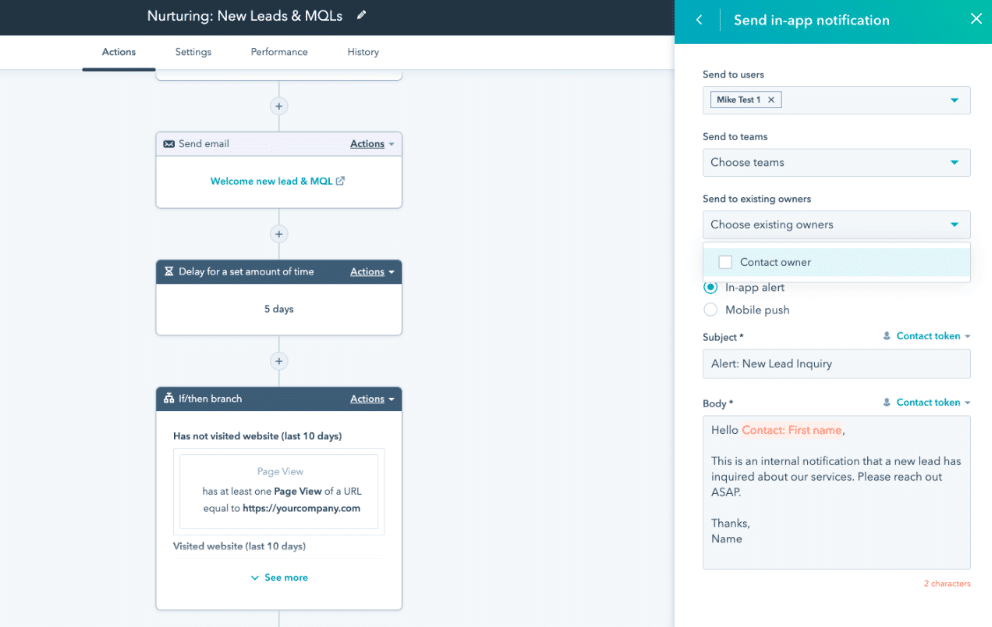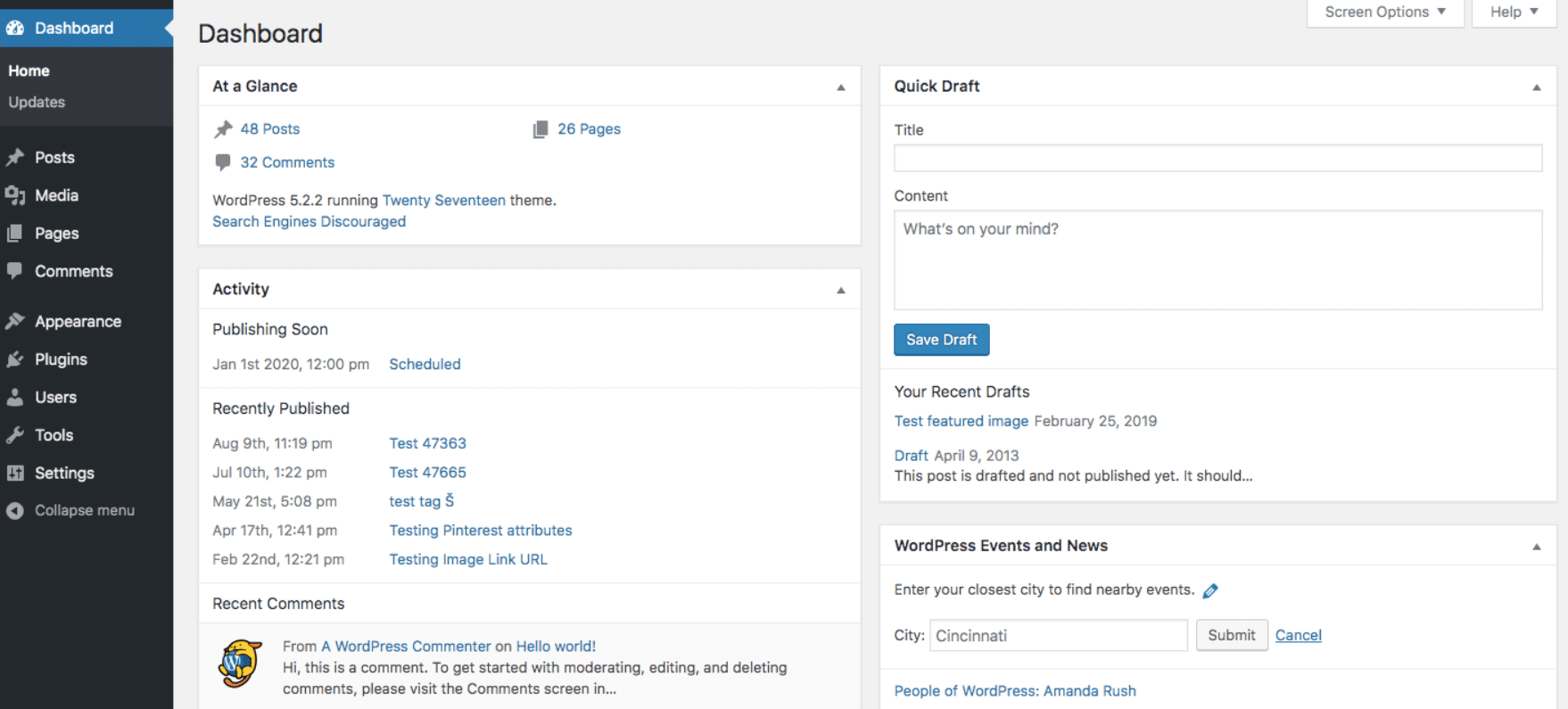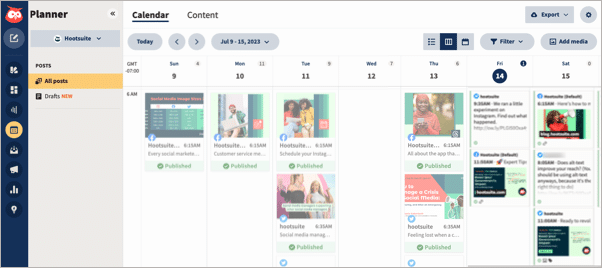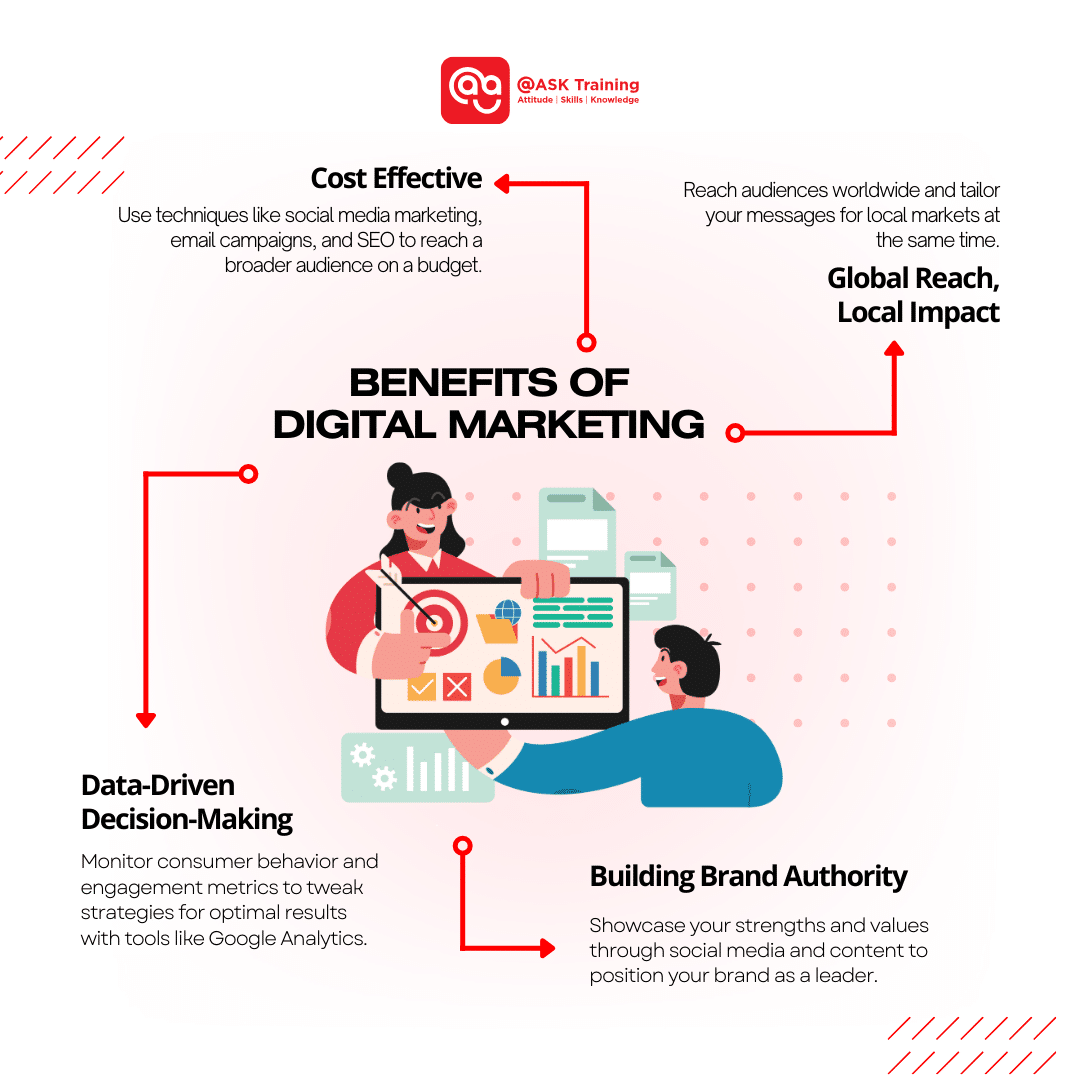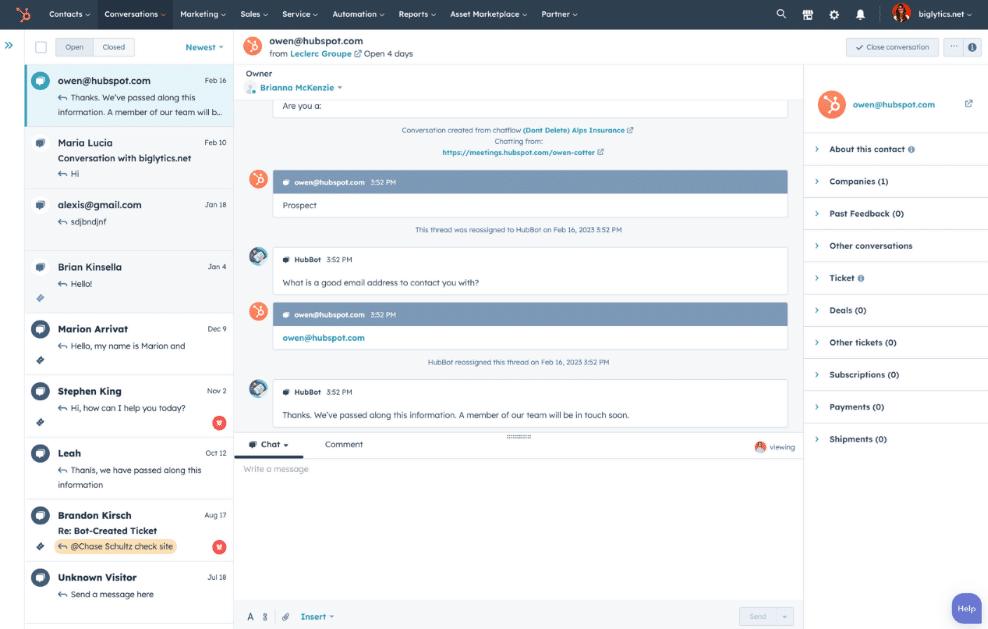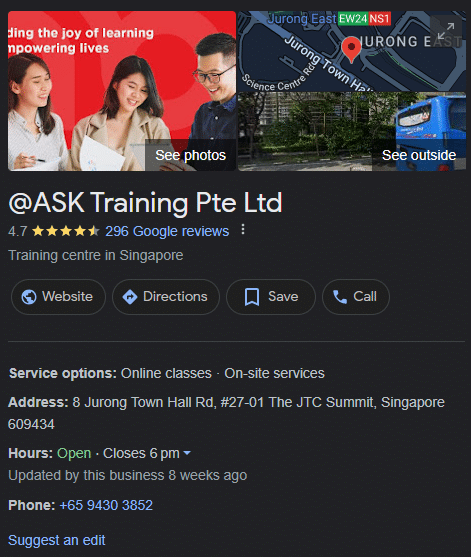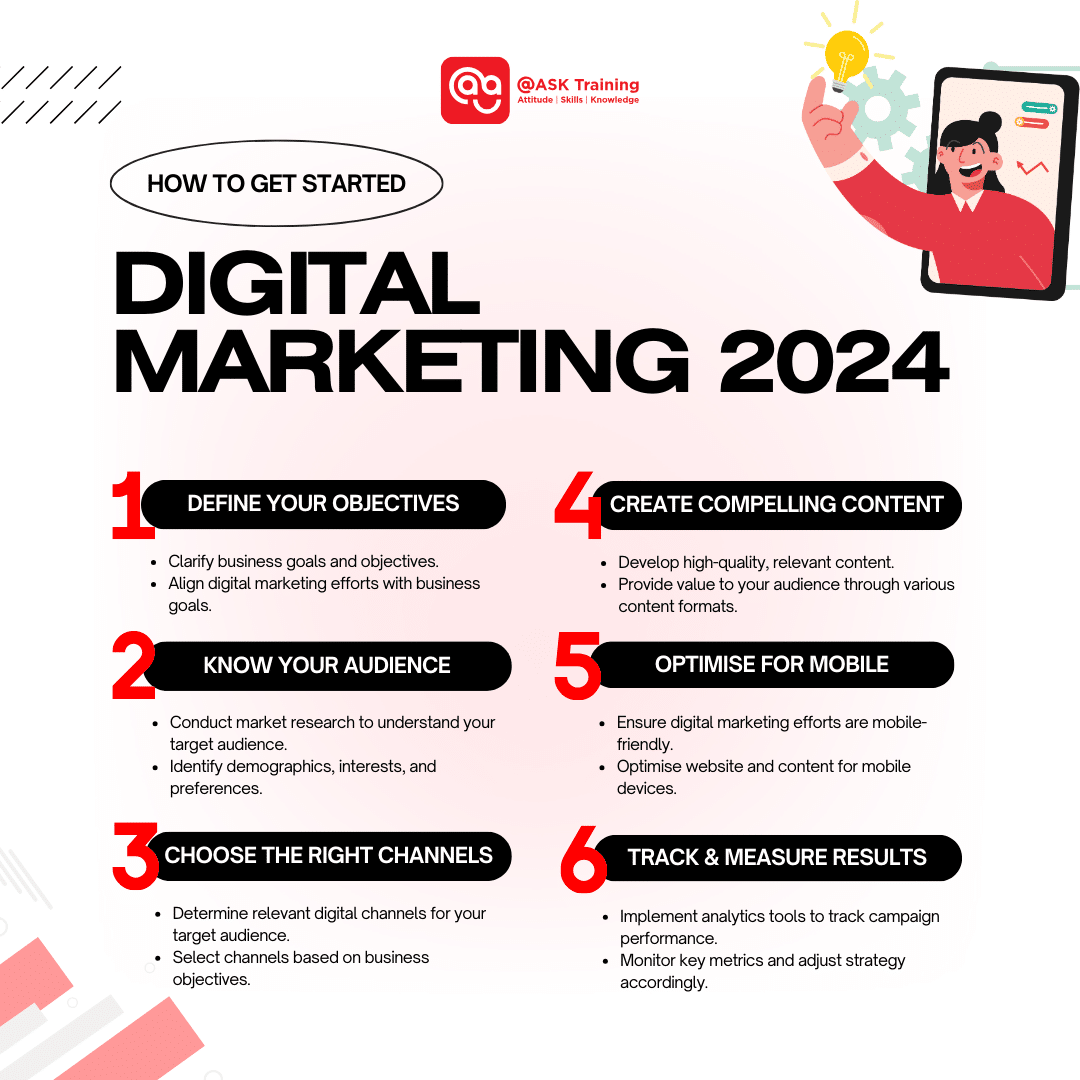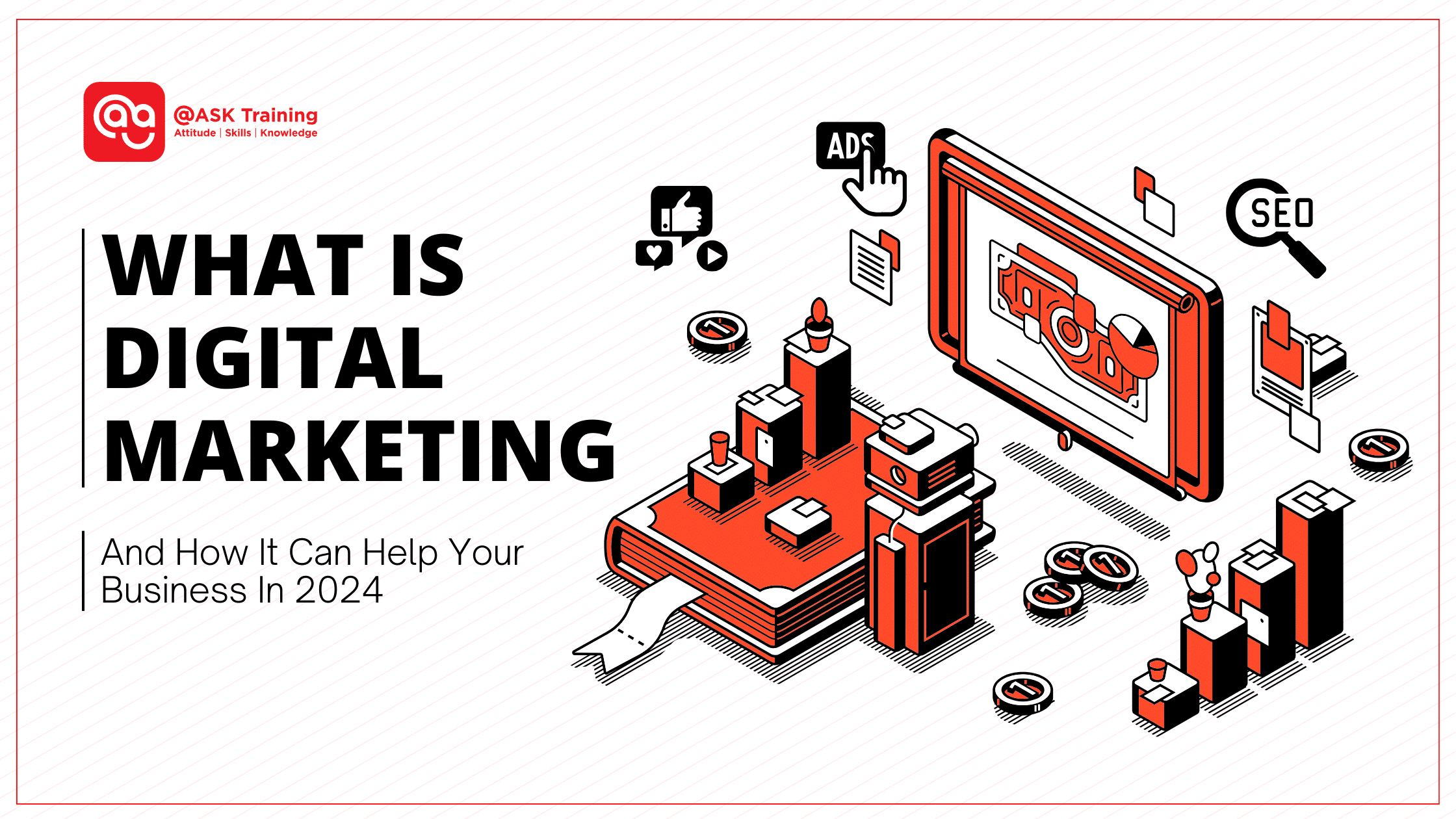
In 2023, we witnessed some exciting changes in the digital world. Twitter underwent a surprise rebranding as X, Meta introduced Threads, and the wave of ChatGPT emerged.
These changes are not just cool trends, but they represent opportunities for growth and demand essential skills for navigating complexities in today’s competitive digital landscape.
If you’re a business owner or job seeker in Singapore, embracing digital marketing is no longer just an option; it’s a must-have to thrive in this digital age.
With online interactions shaping consumer experiences, mastering digital marketing strategies is crucial for the success of your business or career.
Let’s dive into what digital marketing entails and how it can help take your business to new heights in 2024.
Understanding Digital Marketing
Digital marketing is the use of online tools and techniques to promote products, services, or brands. As of October 2023, the global internet user count reached 5.3 billion, representing 65.7% of the world’s population. Within this figure, social media users accounted for 4.95 billion
In Singapore, almost everyone is online, with 5.84 million internet users at the beginning of 2024 alone! This means that businesses must have a strong online presence to grow and succeed.
Digital marketing helps by increasing brand awareness and reaching potential customers. So, if you’re running a business, it’s essential to equip yourself with the latest digital marketing skills and trends.
What is Digital Marketing?
Digital marketing is all about reaching out to users where they spend most of their time online. It includes using various online platforms and methods, each playing a unique role in the world of digital marketing.
Some of the core components of digital marketing include:
Social Media Marketing:
Using social media platforms such as Facebook, Instagram, Twitter, and LinkedIn can help you connect with people, raise awareness about your brand, and establish positive relationships with your customers.
By utilising social media marketing, you can reach out to potential customers, showcase your products or services, and build a loyal customer base by directly interacting with people.
This strategy allows you to establish trust and recognition of your brand among your target audience.
Search Engine Optimisation (SEO):
SEO is like fine-tuning your online content, from websites to articles. Hence, they pop up higher in Google searches, catching more eyes.
It’s also about making sure that when your target audience searches online, they can easily find your business, boosting visibility and attracting more visitors.
By perfecting SEO, businesses like yours can ensure locals spot them first in Google searches, giving you an edge in the competitive Singapore market and attracting more potential customers. You can also be an expert in SEO by joining our 2-Day WSQ SEO course.
Email Marketing:
Think of it as sending personal messages to potential and existing customers to keep them in the loop, share exciting updates, and let them know about special deals or offers.
Its primary purpose is to stay connected with your audience, build trust, and drive sales by delivering tailored messages directly to their inbox.
Email marketing allows you to nurture relationships with your Singaporean and international customers, keeping them engaged and informed about your latest offerings, ultimately leading to increased loyalty and sales.
Content Marketing:
Create and share engaging content online, such as social media posts, articles, videos, or podcasts, to capture people’s attention, educate them, or spark their interest in your business.
This approach allows you to showcase your expertise and provides value to your audience, fostering trust and loyalty over time.
By utilising content marketing effectively, your business can position itself as a leading authority in the industry, attract a larger customer base through valuable information, and distinguish itself in a crowded marketplace.
Pay-Per-Click (PPC) Advertising:
PPC is like setting up billboards in busy online streets, where you only pay when someone looks at them or clicks on them.
It’s all about getting your message in front of the right people at the right time, driving targeted traffic to your website and boosting sales or conversions.
By investing in PPC advertising, you can quickly grab the attention of potential customers in Singapore and internationally, driving them to your website and increasing the chances of turning them into paying customers.
Search Engine Marketing (SEM):
SEM means using paid advertising on search engines like Google to appear at the top of search results for specific keywords, attracting potential customers actively looking for products or services.
By increasing visibility in search engine results, SEM drives targeted traffic to your website, ultimately boosting online sales or conversions.
This targeted approach ensures that your business connects with potential customers precisely when they’re searching for related products or services.
What are the Channels of Digital Marketing?
Digital marketing encompasses diverse channels, each offering unique opportunities for businesses to connect with their target audience.
These channels include:
1. Social Media Platforms
Facebook, Instagram, X (Formerly known as Twitter), LinkedIn, Snapchat, TikTok, and Pinterest are just a few examples of social media platforms where you can engage with your audience through organic posts, paid advertisements, and influencer collaborations.
2. Search Engines
Google, Bing, and Yahoo are primary search engines where you can optimise your online presence through SEO strategies to improve visibility and attract organic traffic.
3. Email Platforms
Email marketing platforms such as Mailchimp, Constant Contact, and HubSpot enable your business to create and send personalised email campaigns to nurture leads and maintain customer relationships.
4. Websites and Blogs
Company websites and blogs serve as digital storefronts where you can showcase your products or services, share valuable content, and engage with visitors through comments, subscriptions, and contact forms.
5. Mobile Apps
Mobile marketing involves reaching your audiences through mobile devices, including smartphones and tablets, via mobile apps, push notifications, and mobile-friendly websites.
6. Ad Platforms
Platforms like Google Ads, Facebook Ads, Instagram Ads, and LinkedIn Ads offer targeted advertising solutions to reach specific audiences based on demographics, interests, and online behaviours.
The Role of Digital Marketing in 2024
As we navigate through the digital landscape of 2024, we need to understand how digital marketing plays in shaping the way we behave as consumers and how businesses today decide on what to do.
Here, we go into detail on two key aspects that define the significance of digital marketing in the current landscape:
What are the Current Trends You Need to Know in 2024?
Let’s take a look at how you can connect with your audience better through these current digital marketing trends:
1. Personalisation Matters:
Modern consumers have a strong preference for personalised experiences across digital platforms. This includes targeted advertisements and tailored product recommendations.
Whether you are a digital marketer or a business owner based in Singapore, it is essential to learn how to analyse your data and implement it effectively in your marketing strategies. This will help you deliver personalised content and experiences that resonate with your audience.
2. Rise of Influencer Marketing and User-Generated Content (UGC):
If you’re an active user of social media, you might notice that influencer marketing is taking off lately, along with the growing popularity of user-generated content (UGC).
People want authenticity and relatability from brands. Working with influencers and fellow consumers to create user-generated content is usually perceived as more trustworthy, providing credibility and building trust with your audience. On top of that, it also acts as social proof for your brand.
3. It’s All About Visual Content:
Pictures and videos are all the rage now. Platforms like Instagram, Pinterest and TikTok are flooded with them. As a digital content creator, it is important to be more creative with your content.
This includes making eye-catching videos, stunning images, and digestible infographics to grab your audiences’ attention as they scroll through your feeds.
4. Shopping on Social Media:
Social media platforms have changed from being just a place to connect with others, to also being a way to buy things online. Facebook, Instagram and TikTok now have shopping features that allow you to discover and buy products directly on their platforms which is called social commerce.
As a result of this, the use of “lives” on these social media platforms to showcase products and interact with audiences has been gaining popularity with some brands dedicating entire teams to do regular “live” sessions every day.
Live shopping combines the elements of entertainment, interactivity, and immediate transactions, offering a dynamic and engaging way for consumers to explore and buy products while actively participating in a live event, changing the way even auction sales are done.
How Digital Interactions Are Changing Our Lives?
In 2024, we’re seeing a surge in our dependence on online platforms and digital interactions, and it’s shaping the way we behave and what we expect:
Digital-First Mindset:
In today’s world, most people rely heavily on their smartphones and the internet to get through their daily lives. It’s not surprising that we’ve all developed a digital-first mindset.
Whether we’re looking for product reviews, doing some online shopping, or catching up on the latest entertainment, we’re turning to online platforms for almost everything.
As a business, digital marketing is not just an option but a necessity to connect and engage with our target audience effectively.
Virtual Engagement:
COVID-19 has pushed us to the virtual world. Digital platforms are now our go-to for communication, collaboration, and entertainment. It’s changed the game for businesses, forcing us to rethink how we reach our customers. Virtual events, live streaming, and online communities are now the norm.
Mobile Dominance:
Mobile devices have become the primary means of digital interactions. Whether we are browsing through social media or surfing the internet, we often do so on our smartphones or tablets.
Therefore, you need to ensure that your digital marketing strategies are optimised for mobile devices. All your online assets including your website, emails, and ads should offer a seamless experience across devices to keep your audience engaged.
Now, let’s go into the next essential topic: exploring the must-have digital marketing tools and technologies.
Digital Marketing Tools and Technologies
In the dynamic realm of digital marketing, businesses must use the appropriate tools and technologies to connect with and engage their intended audience.
Here, we’ll give you a quick overview of some essential tools and technologies that can help you achieve success in your digital marketing efforts such as the use of automation, artificial intelligence, and other innovative solutions.
Essential Tools and Technologies for Effective Digital Marketing
Marketing Automation Platforms:
Marketing automation platforms like HubSpot, Marketo, and Mailchimp can help you streamline your marketing tasks, such as email campaigns, social media posting, and lead nurturing. Plus, they allow you to personalise your communications and track customer interactions. This means that you can increase efficiency and effectiveness in your marketing efforts. Discover more strategic ways to utilise marketing automation platforms with our WSQ Email Marketing course.
(Source: HubSpot)
Data Analytics Tools:
Data analytics tools like Google Analytics, Adobe Analytics, and Kissmetrics provide businesses with valuable insights into website traffic, user behaviour, and campaign performance. By analysing data metrics such as traffic sources, conversion rates, and engagement metrics, you can make data-driven decisions to optimise your marketing strategies and improve ROI. Check out our WSQ Google Ads short course to get started!
(Source: Google)
Content Management Systems (CMS):
Content management systems like WordPress, Drupal, and Joomla empower businesses to create, manage, and publish content on their websites easily. These platforms offer features such as content editing, version control, and SEO optimisation, enabling businesses to maintain a dynamic and engaging online presence.
(Source: WordPress)
Social Media Management Tools:
Social media management tools like Hootsuite, Buffer, and Sprout Social simplify the process of managing multiple social media accounts and scheduling posts across various platforms. These tools provide you with analytics, monitoring, and publishing capabilities, allowing you to streamline your social media marketing efforts and track performance metrics.
(Source: HootSuite)
How Can Businesses Benefit from Digital Marketing?
Digital marketing has the potential to revolutionise your business, providing a handful of benefits that can help you achieve your marketing goals.
Let’s walk through some of the key advantages that digital marketing brings to businesses in 2024:
1. It’s Cost Effective
Digital marketing provides an excellent alternative to traditional marketing methods, such as print ads or TV commercials. The beauty of digital marketing is that it uses techniques like social media marketing, email campaigns, and SEO to reach a wider audience without breaking the bank.
This is beneficial especially for Startups and Small and Medium-sized Enterprises (SMEs) to level the playing field and enable them to compete effectively with large corporations with bigger budgets.
2. Global Reach with Local Impact
Digital marketing allows businesses to reach a global audience, breaking geographical barriers. However, it’s not just about going big. You can still create targeted messages for local Singapore markets, making your campaigns more effective.
With digital marketing, you can customise your messages and campaigns to specific local markets, ensuring that they resonate with the local audience and remain relevant.
3. Data-Driven Decision-Making
Compared to traditional methods, digital marketing provides real-time insights into campaign performance. By using tools like Google Analytics, you can monitor consumer behaviour and engagement metrics, enabling you to make informed decisions to optimise your strategies for better results.
4. Building Brand Authority
In a competitive market, earning your customers’ trust is key. Digital marketing is a great way for your business to showcase what you’re good at and what you care about using social media and content. This helps you position your business as an industry leader and win the loyalty of your audience.
Businesses today can unlock new opportunities and connect with their audience by embracing digital marketing strategies and leveraging the advantages of the digital world. Then, the next question should be what are the current digital marketing strategies?
Current Digital Marketing Strategies
Businesses are constantly refining their strategies to effectively engage with their audience and drive results.
Let’s explore some popular tactics businesses are utilising in 2024:
a. AI and Machine Learning in SEO
Search engines like Google are always changing the way they show results to users. This means that businesses need to use AI-powered tools like ChatGPT and Frase to keep up with the competition.
AI and machine learning algorithms help businesses analyse large amounts of data, understand what users are searching for, and improve their website’s content to appear higher up on search results pages.
By using AI and machine learning for SEO, your business can adapt to changes in search trends, improve your online presence, and attract more people to your website.
b. Social Selling via Video Content
Social selling involves using popular social media platforms such as Facebook, Instagram, and TikTok to establish relationships with potential customers, showcase your products or services, and even complete transactions right there on the social media platform.
Video content is an essential component of social selling. Videos offer a fun, interactive, and engaging way to communicate with your audience.
You can create product demonstrations, share customer testimonials, or even provide behind-the-scenes glimpses to help your viewers feel more connected to your brand.
This helps build trust and promote brand awareness, which can ultimately drive sales. Learn more about how you can strategise your business better via video content with our WSQ Social Media Marketing course.
c. Customer Relationship Management (CRM) Systems
Suppose you own a business and want to build and maintain strong relationships with your customers. In that case, you need a Customer Relationship Management (CRM) system.
These systems are essential tools that allow you to centralise customer data, track interactions, and personalise communications across multiple touchpoints.
By segmenting customers based on demographics, behaviour, or purchase history, you can tailor your marketing efforts to meet the unique needs and preferences of different customer segments.
With a CRM system, you can deliver timely and relevant messages that enhance customer loyalty and drive repeat business. You can create automated email campaigns or targeted promotions that will help you stay connected with your customers and keep them coming back for more.
(Source: HubSpot)
d. Google My Business (GMB)
Google My Business (GMB) is a free and powerful tool that allows your business to manage its online presence across Google’s platforms, including Google Search and Google Maps.
By creating and optimising a GMB profile, you can provide essential information about your business such as your address, phone number, hours of operation, and customer reviews.
This information appears prominently in search results, making it easier for potential customers to find and engage with your business. This is also beneficial when it comes to local SEO, which makes your business more visible to potential customers who are near your area.
Additionally, GMB offers features like posts, messaging, and insights, enabling your business to connect with customers, showcase promotions, and track engagement metrics.
Here’s @ASK Training Singapore’s GMB profile as an example:
e. First-Party Data in the Era of Privacy
In an era of increasing data privacy concerns and evolving consumer preferences, first-party data has become invaluable for businesses looking to personalise their marketing efforts.
First-party data refers to information collected directly from customers or website visitors, such as email addresses, purchase history, or website interactions.
By leveraging first-party data, you can create targeted marketing campaigns that resonate with individual customers, driving engagement and conversion rates.
As major platforms like Google are phasing out third-party tracking, relying on first-party data has become even more critical for businesses to maintain effective targeting and measurement capabilities in their marketing efforts.
It’s not just about privacy compliance anymore – it’s about using the data you already have to deepen customer relationships and drive meaningful results for your business.
Case Studies
To make a digital marketing campaign that hits home with your audience and drives results, it’s all about using fresh and innovative tactics and seizing real-time opportunities.
Here are some examples of digital marketing campaigns that you can draw inspiration from to create your campaigns:
(Source: Barbie Official Site, 2023)
1. Barbie The Movie
In 2023, Mattel and Warner Bros. embarked on an ambitious digital marketing campaign to promote the release of the Barbie movie. Through the strategic use of digital platforms and innovative marketing tactics, the campaign achieved remarkable success, driving widespread anticipation and excitement for the film.
Key Strategies:
- Social Media Activations:
Introduced dedicated hashtags (#BarbieMovie, #BarbieDreams, #BarbieChallenge) for fans to engage with exclusive content on Instagram, Facebook, TikTok, and X.
- Influencer Partnerships:
Collaborated with influencers and celebrities for sponsored content and virtual events that helped generate excitement for the film by creating a stream of inspired memes based on the movie.
- Interactive Experiences:
Offered virtual dress-up games, Selfie Generator, AR filters, and quizzes to immerse audiences which has been used over 13 million times.
- Immersive Content Creation:
Produced teaser trailers, behind-the-scenes documentaries, and character profiles to spark anticipation.
(Source: Apple, 2023)
2. Apple’s ‘Shot on iPhone’ Campaign
Launched in 2015, the campaign aimed to showcase the remarkable photography capabilities of the iPhone and celebrate the creativity of iPhone users around the world.
By encouraging users to share their best iPhone-captured photos and videos on social media using the hashtag #ShotoniPhone. According to Apple, the campaign generated over 15 million submissions from users in over 30 countries.
Key Strategies:
- Empowering User Creativity:
The #ShotoniPhone campaign empowered users to unleash their creativity and capture stunning moments using their iPhones. Apple inspired users to push the boundaries of mobile photography and storytelling.
- Celebrating Diversity and Inclusivity:
The campaign featured a diverse array of user-generated content, showcasing a wide range of subjects, styles, and perspectives from around the world.From breathtaking landscapes to intimate portraits, #ShotOniPhone celebrated the diversity of human experiences and the universal language of photography.
- Fostering Community Engagement:
#ShotoniPhone fostered a sense of community among iPhone users, encouraging them to share their creations, connect with like-minded individuals, and inspire others with their work.One recent example was Apple’s Scary Fast event to reveal their new MacBook Pro.
How to Get Started with Digital Marketing in 2024
Getting started with digital marketing in 2024 requires a strategic approach that aligns with your business goals and target audience.
Here are some steps to consider:
- Define Your Objectives
- Clarify business goals and objectives.
- Align digital marketing efforts with business goals.
- Know Your Audience
- Conduct market research to understand your target audience.
- Identify demographics, interests, and preferences.
- Choose the Right Channels
- Determine relevant digital channels for your target audience.
- Select channels based on business objectives.
- Create Compelling Content
- Develop high-quality, relevant content.
- Provide value to your audience through various content formats.
- Optimise for Mobile
- Ensure digital marketing efforts are mobile-friendly.
- Optimise website and content for mobile devices.
- Track and Measure Results
- Implement analytics tools to track campaign performance.
- Monitor key metrics and adjust strategy accordingly.
Now that you have considered all these steps for your business, here’s how you can level up your digital marketing knowledge and why it’s important.
The Importance of Digital Marketing Upskilling
With technology constantly changing how we do things and how customers behave, businesses need to get on board with digital marketing to keep up and stay in the game. Realising that it’s time to adapt is the first big move toward success in this digital world.
When you level up your digital marketing skills, you open the door to a ton of benefits that will help your business shine and stay ahead of the competition. It’s like having a secret weapon that gives you an edge in your industry!
Let’s go further on why it’s important to upskill your digital marketing.
Why Digital Marketing Skills Matter?
The digital world is always changing and it’s full of opportunities and challenges for businesses. With all the online platforms, social media channels, and e-commerce solutions available, people have more choices than ever.
To get ahead of the game, you need to take advantage of the current digital marketing strategies and adapt to this digital landscape.
It’s not rocket science, though! Digital marketing upskilling can give you all the tools and knowledge you need to connect with your target audience better.
Therefore, to succeed in this digital scene, you need to be ready to navigate the complexities and take advantage of the opportunities that come your way.
How does Upskilling in Digital Marketing Benefit You?
Upskilling in digital marketing offers numerous advantages for businesses looking to stay competitive in today’s fast-paced market such as:
- Getting a better understanding of your audience will help you create campaigns that hit the bullseye.
- Using data analytics and insights to fine-tune your marketing strategies and get better results.
- Staying up to date with the latest trends in your industry will keep you ahead of the game.
- And most importantly, the secret sauce for creating killer marketing strategies: always learning and growing.
By investing in your ongoing learning and professional development, you can ensure that your marketing game stays sharp and effective!
Recommendations
If you are a business owner in Singapore looking to get started in Digital Marketing and get certified, here are some helpful recommendations to help you kickstart that journey:
1. Explore SkillsFuture Recognised Courses
- Diverse Course Offerings:
@ASK Training Singapore provides a broad range of SkillsFuture recognised digital marketing courses, catering to different skill levels and areas of expertise. - Experienced Instructors:
Courses are led by industry professionals with practical experience in digital marketing, ensuring participants receive valuable insights. - Hands-on Learning:
Emphasis on practical exercises, case studies, and simulations enables participants to apply learned concepts effectively.
2. Industry Reports and Publications
- Access to Latest Trends:
Regularly consulting industry reports, such as those from reputable sources like HubSpot, Moz, and Social Media Examiner, keeps you updated on the latest trends, developments, and best practices in digital marketing. - Guidance from Experts:
Industry reports often feature analysis and commentary from industry experts and thought leaders. This provides valuable perspectives and guidance on navigating the evolving digital landscape.
3. Networking and Communities:
- Access to Knowledgeable Community:
Joining digital marketing networking groups and communities on platforms like LinkedIn Groups and Facebook Groups provides you access to a community of industry professionals. - Expand Your Network:
Networking with industry professionals helps you expand your professional network, forge valuable connections, and establish mutually beneficial relationships.
Ready To Conquer The Digital World?
By now, you should have a solid grasp of digital marketing—from its basics to its benefits for your business, the latest trends, crucial tools and tech, effective strategies, tips for starting and upskilling in digital marketing.
As we journey through 2024’s digital landscape, it’s crystal clear: digital marketing isn’t just a trend—it’s a must-have for business triumph. Think of it as more than just a passing phase; it’s the backbone of modern business.
Whether you’re a startup or a corporation, embracing digital marketing isn’t a choice anymore—it’s a must-do for staying ahead of the game.
So, jump on board now, fuel up your digital marketing skills and efforts, and get ready to conquer the digital world!
About @ASK Training Singapore
@ASK Training is a SkillsFuture Singapore-appointed Continuing Education Training Centre (CETC). Our training courses are eligible for up to 95% SkillsFuture Funding.
@ASK Training Singapore provides both short WSQ digital marketing courses and in-depth full qualification programmes such as:
- WSQ Advanced Certificate in Digital Marketing
- WSQ Diploma in Digital Marketing
- WSQ Specialist Diploma in Digital Marketing
Ready to upgrade your Digital Marketing skills? Contact us today!
